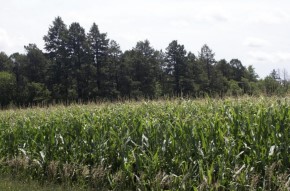By Madelyn Beck

Thursday had all the makings of deja vu for the U.S. House’s farm bill draft: immigration concerns, uncertain Republican votes and a wall of Democratic opposition to changes in the main federal food aid program.
In the end, the chamber avoided a repeat of May’s failure, when members of the conservative Freedom Caucus wanted to deal with immigration first. But the farm bill passed Thursday — narrowly, 213-211. Still, 20 Republicans voted against it, as did every Democrat in the chamber.
The passage was hailed by U.S. Department of Agriculture Secretary Sonny Perdue, who said in a statement that while “American producers have greatly benefited from the policies of the Trump Administration, including tax reforms and reductions in regulations,” a farm bill is necessary.
“No doubt, there is still much work to be done on this legislation,” Perdue added, a nod to the Senate still needing to pass their version, which is expected to come next week. After that, both chambers will have to find a compromise.
The House’s version is notable because it makes significant changes to the Supplemental Nutrition Assistance Program, or SNAP, formerly known as food stamps. It would expand the number of people who must follow work requirements or volunteer or join training programs for 20 hours a week.
Democrats have said the more strict requirements would be onerous for hungry families.
But Rep. Vicky Hartzler, a Missouri Republican, called the changes “historic improvements.”
“This bill promotes work and individual success while empowering those dependent on government assistance,” she said in a statement. Hartzler, who is on the House ag committee, also had language approved that allows grazing on Conservation Reserve Program lands.
Click here to see more...